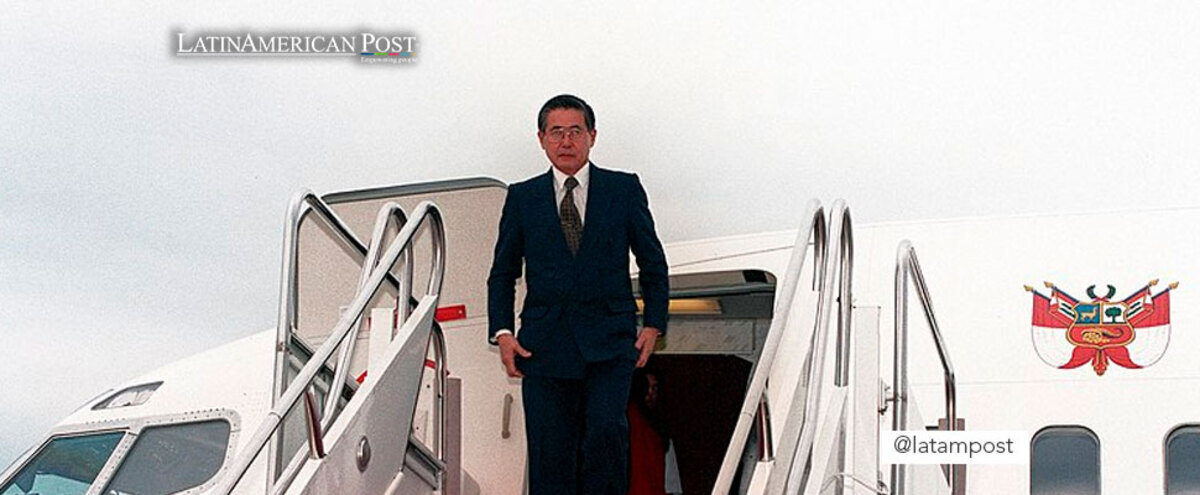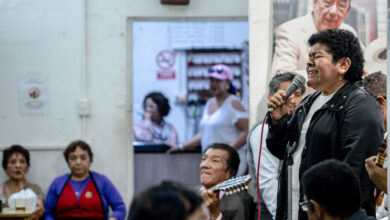For What Crimes Has Alberto Fujimori Been Convicted?
The former president of Peru Alberto Fujimori could be free after a decision made by the Constitutional Court.

Photo: Staff Sergeant Karen L. Sanders
LatinAmerican Post | Nicolás Donoso Álvarez
Escucha este artículo
Leer en español: ¿Por cuáles delitos ha sido condenado Alberto Fujimori?
Alberto Fujimori is considered one of the most recognized and controversial figures in Peruvian and Latin American politics. He is loved by a part of the population and hated by another good portion. The truth is that who was the president of Peru for just over ten years in the 90s until the beginning of this new century leaves no one indifferent.
It is necessary to remember that Fujimori faces a sentence of 25 years in prison for the crimes against humanity committed during his mandate by the Colina paramilitary group. At present, a controversy has arisen after the Constitutional Court approved his release, despite the opposition of a large number of human rights defenders. But what crimes did Alberto Fujimori commit throughout his political career?
Massacre of Barrios Altos and La Cantuta
Since 2009, the Special Criminal Chamber of the Supreme Court ruled against the former Peruvian president for the crimes of murder and aggravated kidnapping.
Undoubtedly, the most shocking conviction that Fujimori has received is, as previously mentioned, that of crimes against humanity that occurred during the years in which he was in power. The Barrios Altos massacre occurred in 1991 and left an unfortunate death toll of fifteen people, including eight children. The attackers of this unfortunate event, which occurred in a popular area of Lima, were executed by the aforementioned Colina Group. It is about a military detachment that sought to eliminate Sendero Luminoso, an organization of Marxist-Leninist ideas.
Likewise, Fujimori was considered responsible for this and another massacre, that of La Cancuta, in which the Colina paramilitary group was again involved in the murder of ten people, including a teacher and nine students from an establishment located in Lima.
Usurpation of Functions
At the end of Fujimori's third presidential term, he was accused of usurpation of functions and abuse of power after an illegal search was carried out in the house of the wife of Vladimiro Montesinos, his former presidential adviser. What was sought at said the address was presumably some tapes in which it was left in evidence how Montesinos negotiated illegally with recognized people. In addition, Fujimori would have given him 15 million dollars, taken from State funds, to give to his right-hand man as a reward.
You may also be interested in: Peru, a country without a president will face another impeachment
Embezzlement of Public Funds
He had been sentenced for eight years for the "Diarios Chicha" case, where he was accused of "diverting public funds to buy the editorial line of tabloid newspapers because of his re-election in 2000." The latter to presumably getting enough money to finance his presidential campaign in those tumultuous years.
In short, he was accused of bribing major media outlets to campaign on his behalf so that he could continue to rule the country. However, neither his re-election took place nor was he convicted of this crime since he ended up being acquitted by the Supreme Court in 2016 (a year after he was found guilty). The result is that it was not possible to "prove their connection with these newspapers."
Corruption is a Vice that Does Not Leave Peruvian Politics
Six years in prison for crimes of corruption and espionage are what Fujimori received in 2009. And it is not surprising, because in Peru in the last 30 years six former presidents have been involved in corruption cases. From Alberto Fujimori himself to others like Martín Vizcarra, Alan García (he took his own life in 2019 when the police went to his house to arrest him), or Pedro Pablo Kuczynski.
About the particular case of Fujimori, there is talk of corruption after the bribery carried out by his former adviser Vladimiro Montesinos in 2000 to a group of parliamentarians so that in this way they would become part of the ruling party and thus they could be a majority in Congress. This scandal was exposed through the tapes mentioned above.
In a country that lives in constant political turbulence and amid corruption that seems to have no end in sight, Alberto Fujimori could reopen wounds that seemed to be healing, or at least that they were healing. That shows the commotion that this sentence has generated that could now bring his release.


